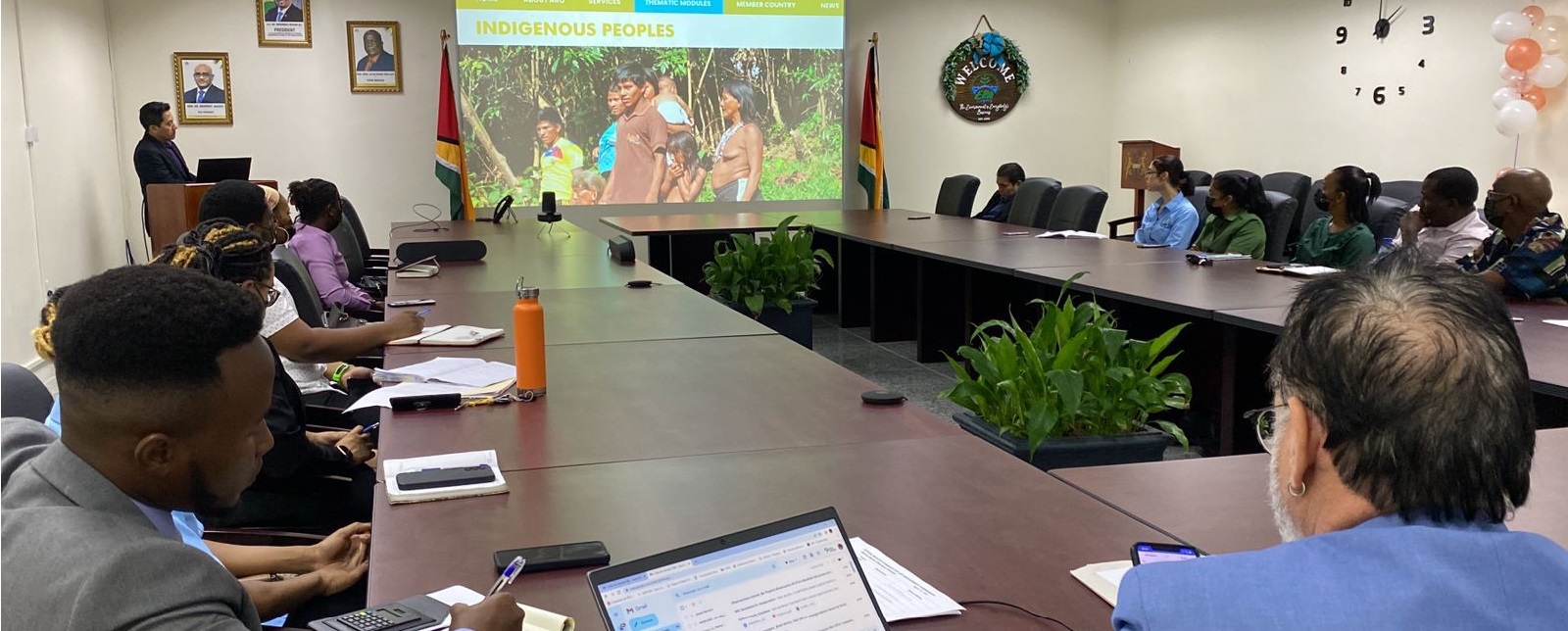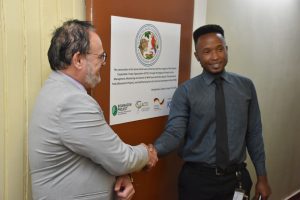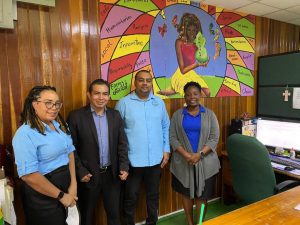Guyana hosted a visit from the Bioamazon Project team

Oct 27, 2022 | AMAZON REGIONAL OBSERVATORY | BIOAMAZON PROJECT
Two workshops were held with the Guyanese team.
From August 29 to September 2, the Project Bioamazon/ACTO team visited Guyana following a work agenda including the holding of two workshops focused on the assessment of the execution of Project Bioamazon/ACTO and for the presentation of the Amazon Regional Observatory (ARO), respectively.
The opening ceremony was held at the facilities of the Environmental Protection Agency (EPA) of Guyana with a welcoming speech by Alona Sankar, National Technical Focal Point of Project Bioamazon/ACTO, who referred to the objective of the technical visit.
Participants in the opening session included technicians and process coordinators from institutions directly involved in the implementation of the Project at the national level, such as the Wildlife Conservation and Management Commission (GWCMC), the Forestry Commission (GFC), the Environmental Protection Agency (EPA), the Hydrometeorological Service (Hydromet), and the Ministry of Foreign Affairs of Guyana.
Junior Alexander, the ACTO focal point of the Ministry of Foreign Affairs, took the floor to express his gratitude for the visit of the Project’s technical mission, and highlighted the importance of the investments made by the Project to improve biodiversity management and CITES implementation, as well as the importance of implementing the ARO to support information management in Guyana; concluding the opening session with his intervention.
An introductory workshop was then held to introduce the ARO and its tools and interoperability procedures. A dialogue was also held with the participants to explore on the one hand, their understanding of the ARO and, on the other hand, to learn about their expectations with regard to the information, data, and services/products that the ARO should contain. In their interventions, participants emphasized that the ARO should be a useful tool to support not only political decision-making, but also to support learning and/or research processes in universities and be a practical tool to support the formulation of Non-detriment Findings (NDF) for species listed in the Convention on International Trade in Endangered Species of Wild Fauna and Flora (CITES).
During the afternoon session of the Project Bioamazon/ACTO workshop, the activities implemented, and achievements reached within each of the three components of the Project were presented.
Based on a questionnaire, the Project’s technical team identified new equipment requirements, such as new servers and an electric power generator to strengthen the achievements of Component 1. A presentation was made on the results of the assessment of the compliance indicators, which allowed the team to review, validate, and complement the information presented.


Field trip
The Guyana Wildlife Conservation and Management Commission, through its Licensing and Permitting Division (L&PD), is responsible for managing the trade of wildlife in Guyana. In this regard, the GWCMC recently launched its Domestic Wildlife Licensing System. Under the Domestic Licensing System, the following persons would need to obtain licenses: trappers, middlemen, wildmeat vendors, wildlife breeders, wildlife collectors (of both plants and animals), researchers, recreational hunters, restaurants that sell cooked wild meat.
Funding was received from the Bioamazon Project to undergo capacity building for managing the domestic licensing system.
This field trip will be conducted for wildlife users in Linden and communities in the Demerara River to undergo the application process and be granted licenses as well as to record interviews on the licensees’ perspectives on the domestic licensing system which will contribute to a documentary on the impact of the Bioamazon Project in Guyana.
On Thursday, September 1, Bioamazon Project and Guyana Wildlife Conservation and Management Commission teams depart for Linden, at Lichas Hall where licensing of wildlife users took place from 09:00 to 16:00, in a walk-in process with wildlife users coming and going throughout the course of the day.
On Friday, September 2, the team departed from Linden to conduct licensing of wildlife users along the Demerara River at the Amerindian villages of Muritaro and Malali. A speed boat was used for this trip and several stops were made along with the river to facilitate licensing of wildlife users as well as to interview on the licensees’ perspectives on the domestic licensing system. Then, they went back to Georgetown.
Source / Credits: OTCA News
